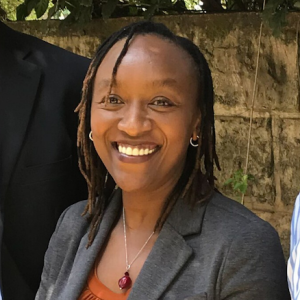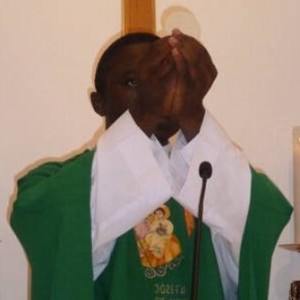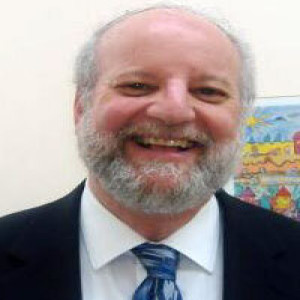The Biblical Mind
The Biblical Mind is dedicated to helping its audience understand how the biblical authors thought, promoting Bible fluency through curious, careful reading of Scripture. It is hosted by Dr. Dru Johnson and published by the Center for Hebraic Thought, a hub for research and resources on the intellectual world of the Bible.
The Biblical Mind is dedicated to helping its audience understand how the biblical authors thought, promoting Bible fluency through curious, careful reading of Scripture. It is hosted by Dr. Dru Johnson and published by the Center for Hebraic Thought, a hub for research and resources on the intellectual world of the Bible.
Episodes

Friday Mar 25, 2022
Friday Mar 25, 2022
To find your place in the story of Scripture, you have to understand the story and then how the story continues into our world today. Many Christians haven't learned a method for reaching sound theological conclusions, and end up being more defensive than constructive. Some Christians are also content to lack Bible knowledge as long as the pastor or another leader has it, instead of becoming knowledgeable themselves within a community.
Caroline Smiley and Kyle Worley explain how they have partnered to help people learn theological methods and frameworks to study the Bible in a way that is sustainable and replicable.
Show notes:
0:27 Beyond Bible study: the contours of Scripture
3:00 What led to their method
5:06 From consumers to contributors
6:37 Help for poorly formed theology
13:49 Challenges of leadership
17:20 We disembody knowledge with one knower
24:30 An alternative to seminary
27:15 Theological education
30:16 Practicing knowledge in the church
31:40 Next steps; partnership and sustainability
Book mentioned:
By the Renewing of Your Minds, by Ellen T. Charry
Show notes by Dominique LaCroix
Credits for the music used in TBM podcast: hebraicthought.org/credits.

Friday Mar 18, 2022
What Do Rituals ’Do,’ and What Makes a Ritual Sacred? (Ben Noonan)
Friday Mar 18, 2022
Friday Mar 18, 2022
Rituals aren't mechanistic activities that may or may not produce a direct, isolated result. Rather, rituals shape a person over time. What distinguishes mundane rituals such as brushing your teeth or drinking coffee from sacred rituals such as baptism?
In Scripture, sacred rituals are formative for particular purposes, separating God’s people from the rest of the world, while simultaneously providing people with a community.
Dr. Ben Noonan joins us to discuss rituals and practices: which ones from the Bible are meant for today, how they change us, and how the rituals we don’t necessarily practice today draw on principles that still can apply to our lives.
Show notes:
0:26 Significance of rituals to faith
2:16 One-time thing?
3:38 The formative aspect of rituals
8:05 Individual and corporate identity
10:21 Is Sabbath a ritual?
14:15 Rituals and sacraments
18:54 “We don’t do those rituals anymore!”
23:32 Can we start with Jesus?
25:16 Talking to those worried about rituals
Show Notes by Dominique LaCroix
Credits for the music used in TBM podcast: hebraicthought.org/credits.

Friday Mar 11, 2022
The True Causes and Purposes of Religious Doubt (Matthew LaPine)
Friday Mar 11, 2022
Friday Mar 11, 2022
For many people, the stress of the pandemic has amplified what would otherwise be small tensions and concerns. This tensions can eventually cause or manifest as creeping religious doubt, which may be interpreted, rightly or wrongly, as a sign of a larger underlying spiritual problem.
Dr. Matthew A. LaPine, pastor of Theological Development at Cornerstone Church of Ames and author of The Logic of the Body: Retrieving Theological Psychology, joins us this week to discuss how he guides others through their doubts (especially college students), and reminds us that in the midst of brokenness, there is still tremendous joy that flows from fellowship with God and others.
Show notes:
0:27 The true sources of religious doubt
3:55 Faith and the college years
8:50 Emotions, rationality, and spirituality
10:17 How God addresses our doubts
15:20 Difference between determination and control
17:50 Is apologetics effective?
25:05 Befriending good scientists
Show Notes by Dominique LaCroix
Credits for the music used in TBM podcast: hebraicthought.org/credits.

Friday Mar 04, 2022
Love Enemies Better through Knowing the Biblical Land (Danielle Parish)
Friday Mar 04, 2022
Friday Mar 04, 2022
The Jewish and Christian faiths exist because of the events that happened in a particular place and time. To understand biblical texts—including issues of justice and loving strangers and enemies—we should learn something about the places where the events they describe occurred. Danielle Parish, pastor of Spark Church in Palo Alto, CA, who leads study tours in Israel, discusses the importance of the biblical land and how enjoying creation as "guardians of the Garden" can deepen our knowledge of Scripture.
Show Notes:
0:25 Perspectives of God
5:14 Consider the birds of the air
6:23 The Importance of the land
10:25 Climate and connection to the land
14:07 Love your enemies
21:44 Reconciliation
22:59 God of rescue and resurrection
24:19 Recommendation for the average church
Show notes by Dominique LaCroix
Credits for the music used in TBM podcast: hebraicthought.org/credits.

Friday Feb 25, 2022
Still Trying to Find Yourself? Try Losing It First (Alan Noble)
Friday Feb 25, 2022
Friday Feb 25, 2022
One of the most countercultural sentences comes from the Heidelberg Catechism: our only comfort in life and death is that "I am not my own, but but belong—body and soul, in life and in death—to my faithful Savior, Jesus Christ." The loudest voices in the contemporary West seem to tell us that we belong to ourselves, that we author our own destinies and create our own identities. This is not the way of Scripture.
It's also an exhausting, depressing, and disappointing way to live. Indeed, belonging to yourself is literally impossible. Counterculturally and even counterintiutively, we need to practice dying to ourselves and living for others, because we belong to God and to our communities.
Though the burden of belonging to others is difficult to bear, with practice and the Holy Spirit’s help it is possible. Dr. Alan Noble joins us to discuss his book You Are Not Your Own, and how to practice belonging to God in a world that is self-seeking.
Show Notes:
0:26 Comfort or solution?
3:42 Practice knowing that you are not your own
7:54 Counting the cost
10:07 Ways God belongs to us
13:55 Dirtlings
15:20 Being = belonging
17:34 Jacques Ellul
19:14 Weaving threads, and the middle-way between resignation and affirmation
27:01 What we’ve lost in renunciation
28:26 Dysfunctional legalism and the singular will
34:40 Stay-at-home parents
38:18 Non-techniques to solve the problem
40:20 Stumbling around, grace, and forgiveness
Other resources mentioned:
The Meaning of the City, by Jacques Ellul
Show notes by Dominique LaCroix
Credits for the music used in TBM podcast: hebraicthought.org/credits.

Friday Feb 18, 2022
The Church Needs African Hermeneutics (Liz Mburu)
Friday Feb 18, 2022
Friday Feb 18, 2022
Where you are situated in time and space affects how you interpret the world. This cultural, geographical, and historical consciousness likewise forms a hermeneutical lens whereby we read and understand Scripture.
Professor Liz Mburu, a Kenyan theologian and author of African Hermeneutics, joins us this week on the podcast to discuss how she views Scripture through an African hermeneutical lens. One African way of seeing the Bible is as a text of power, with a strong focus on the role of the Holy Spirit.
As members of the body of Christ, Christians around the globe need each other's perspective to develop a full understanding of Christianity and how to practice it.
Show notes:
0:27 Biblical hermeneutics
5:06 Looking at Scripture through the Kenyan lens
10:40 Is there an African hermeneutic?
14:45 Scripture as a text of power
19:06 The native religion informing the hermeneutic
23:17 Pastors visiting witch doctors/syncretism
28:06 The Global church needs all its members
Show Notes by Dominique LaCroix
Credits for the music used in TBM podcast: hebraicthought.org/credits.

Friday Feb 11, 2022
The Politics of Punishment in Evangelical America (Aaron Griffith)
Friday Feb 11, 2022
Friday Feb 11, 2022
In the latter half of 20th century, the evangelical community's developing attitudes toward crime and punishment overlapped with the increasingly punitive approach of the American criminal justice system. Faith leaders such as Billy Graham and James Dobson cast crime as an issue of the criminal's heart, deemphasizing its enmeshment with broader social structures and ills.
On this episode, Aaron Griffith discusses his book God’s Law and Order: The Politics of Punishment in Evangelical America and how thinking about criminality can help people deepen their understanding of sin and redemption.
Show notes:
0:25 20th-century Christianity and justice
6:31 Crime: A matter of the heart?
15:45 Cities
21:37 How neighborhoods function
26:45 Biblical principles to guide policing
33:00 Equal treatment for all: a biblical perspective
39:00 Is there room for an inclusive, restorative justice model?
Books/articles mentioned:
The Collapse of American Criminal Justice
"5 Things to Consider When Reading Biblical Law"
The Little Book of Restorative Justice
Show notes by Dominique LaCroix
Credits for the music used in TBM podcast: hebraicthought.org/credits.

Friday Jan 28, 2022
Friday Jan 28, 2022
The Democratic Republic of the Congo has been afflicted by war and violence. The people are not always ready for reconciliation, because they are busy seeking justice. Dr. Jacob Onyumbe Wenyi, a professor and a Roman Catholic priest of the diocese of Tshumbe (D.R. Congo), discusses his book on Nahum, "Piles of Slain, Heaps of Corpses."
The violence in the book of Nahum connects directly to the experiences of people in the Congo. Dr. Onyumbe Wenyi explains how Nahum's portrayal of a vengeful God and abhorrent war scenes can speak to severely traumatized communities.
Show notes:
0:27 Wars in the Congo
3:41 How the war affected the culture
6:29 How people live in a context marked by tragedy
10:35 Not ready for reconciliation
11:36 Dr. Onyumbe Wenyi's perspective on forgiveness
15:40 The Book of Nahum
18:36 Piles of Slain, Heaps of Corpses
Show notes by Dominique LaCroix
Credits for the music TBM podcast: hebraicthought.org/credits.

Friday Jan 21, 2022
What Biblical Racial Reconciliation Actually Looks Like (Anthony Bradley)
Friday Jan 21, 2022
Friday Jan 21, 2022
Reconciliation in practice involves local communities acknowledging the wrongs of their particular pasts and figuring out how to move forward— what the responsibilities are and how to live together in peace.
In the area of racial reconciliation, we focus a lot on justice and the responsibilities of the offenders. But biblical reconciliation also requires the injured party to show mercy and eventually let go of the wrongs, which is profoundly humbling to those receiving the mercy.
Dr. Anthony Bradley joins us this week to discuss what has informed current racial tensions and how churches and communities can move forward.
Show notes:
0:26 Examining the racial tensions within a community
1:50 Racial reconciliation and ignoring history
4:19 What informs current racial tensions
7:05 The 80s
10:39 Reconciliation in Scripture and the local past
17:32 Truth required for reconciliation
20:43 Disconnection from history
28:20 Racial solidarity
Show notes by Dominique LaCroix
Credits for the music TBM podcast: hebraicthought.org/credits.

Friday Jan 14, 2022
The Torah Is Not a Law Book (Jerry Unterman)
Friday Jan 14, 2022
Friday Jan 14, 2022
The nation of Israel was born into a world that was already culturally old and established. When the Torah appeared, the ancient Near East contained several law collections. CHT fellow Dr. Jerry Unterman explains that unlike other law codes of the ANE, the Torah is not a law book. Rather, its unique framework reveals it to be a treaty—a covenant between God and His people, embedded in a narrative.
Show Notes:
0:26 What is the world of law in the Torah?
6:02 Hammurabi and "If x, then y"
9:58 The ANE laws were never promulgated to the people
12:43 The God who makes a treaty with the people
15:47 Laws for the people to "tend"
16:50 Shared responsibility
17:36 The way the law works
21:43 Michael LeFebvre's contested article
25:53 God is the source of justice
27:28 What's the difference between laws?
Show notes by Dominique LaCroix
Credits for the music TBM podcast: hebraicthought.org/credits.






